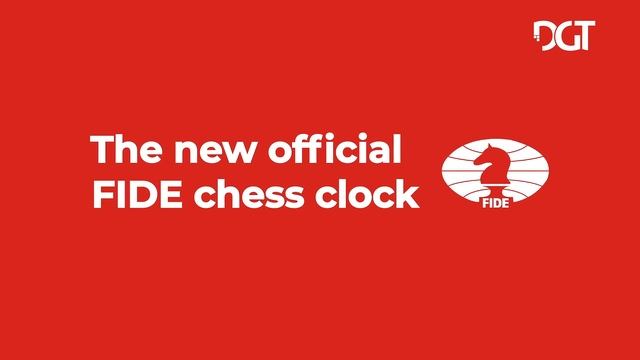The venerable game of chess, a bastion of deliberate thought and intricate planning, has long been defined by the glacial pace of its classical format. Here, every move is a testament to patience, every strategy a carefully constructed edifice built over hours of contemplation. Yet, even this most traditional of intellectual pursuits finds itself at a crossroads, prompted by the inexorable march of modern life. The International Chess Federation (FIDE) is embarking on a pivotal pilot project, introducing a concept they call «Fast Classic» – a bold move that could redefine how we perceive and rate the game`s most revered form.
The Weight of Tradition: Classical Chess and Its Demands
For generations, classical chess has been the ultimate crucible for grandmasters. Its lengthy time controls, often stretching to several hours per player, demand profound strategic foresight, meticulous tactical calculation, and an iron will to withstand the psychological pressures of a prolonged struggle. A game rated as «standard» currently requires significant commitment: up to two hours per player for the highest-rated competitors, ensuring ample time for deep analysis and minimizing errors due to time pressure alone. This traditional pacing is precisely what has historically lent the classical format its gravitas and distinct appeal.
Modernity`s Call: Why the Need for Speed?
However, the world has accelerated. Attention spans, both for players and spectators, have shortened. The demands of professional life and personal schedules make multi-hour tournaments a logistical challenge for many. Players and organizers alike have voiced a growing appetite for formats that retain the strategic depth of classical chess but fit more comfortably into contemporary lifestyles. The idea, championed by chess patron Oleg Skvortsov among others, revolves around creating events where rounds conclude within 2-3 hours, potentially allowing for two such rounds in a single day without exhausting participants or stretching events over an unwieldy number of days.
FIDE`s Unveiling of the «Fast Classic»
FIDE’s response is a fascinating and perhaps oxymoronic designation: the «Fast Classic.» This pilot project introduces a new time control of 45 minutes per player plus a 30-second increment per move (starting from move one). Crucially, the results from tournaments employing this format will count towards players` standard (classical) rating lists. This is a significant departure from the norm, where such shorter time controls typically fall under rapid or blitz categories, distinct from standard ratings.
To test the waters, three events have been designated as part of this pilot:
- The Qatar Cup (September 7–13)
- The QCA Training Center September Tournament Classical (September 25–27)
- The Women`s World Team Championship (November 17–24)
These events will operate under standard rating rules but with specific stipulations. Notably, no title norms (which contribute to earning FIDE titles like Grandmaster or International Master) will be awarded during these pilot tournaments. Additionally, organizers are restricted to scheduling no more than two rounds per day, ensuring players still have adequate recovery time.
The Stakes: Purity vs. Progress
This initiative isn`t merely a procedural tweak; it represents a philosophical pivot. The debate it sparks is fundamental: Can a game truly be «classical» when its duration is significantly truncated? Will the «Fast Classic» retain the strategic depth and analytical rigor that defines traditional chess, or will it inadvertently dilute the very essence of what makes classical chess a unique intellectual challenge? Purists might argue that insufficient time leads to more superficial play and increases the likelihood of blunders, diminishing the quality of games that contribute to a player`s long-term rating.
Indeed, one might muse whether a rapid game now «counts» as classical, perhaps to the dismay of those who believe true classical chess requires enough time to, figuratively speaking, bake a multi-course meal rather than simply microwave a snack.
Conversely, proponents suggest that this format could make chess more dynamic, appealing to a broader audience, and perhaps even more accessible to emerging talents who thrive in faster-paced environments. It could reduce player fatigue over multi-day events and offer more engaging content for live broadcasts, a crucial aspect in sports monetization and outreach.
FIDE`s Measured Approach and The Future Board
FIDE, understanding the magnitude of this potential shift, is approaching the «Fast Classic» with due responsibility. The pilot events are designed as real-world test cases. Following their conclusion, the federation will conduct a thorough analysis of the outcomes, diligently gathering feedback from all participants – players, arbiters, and organizers. This careful, data-driven approach is essential before any decision is made regarding broader implementation or further adjustments to rating regulations.
The success of the «Fast Classic» could usher in a new era for professional chess, making it more flexible, dynamic, and spectator-friendly. It might even democratize classical ratings, allowing more players to participate in meaningful rated events. Or, the pilot might reveal that some traditions, much like a perfectly aged wine, simply cannot be rushed without losing their distinct character.
Only time – and perhaps, in this specific instance, a little less of it – will tell whether the «Fast Classic» proves to be a revolutionary stride forward or a valuable lesson in the enduring virtues of patience.

